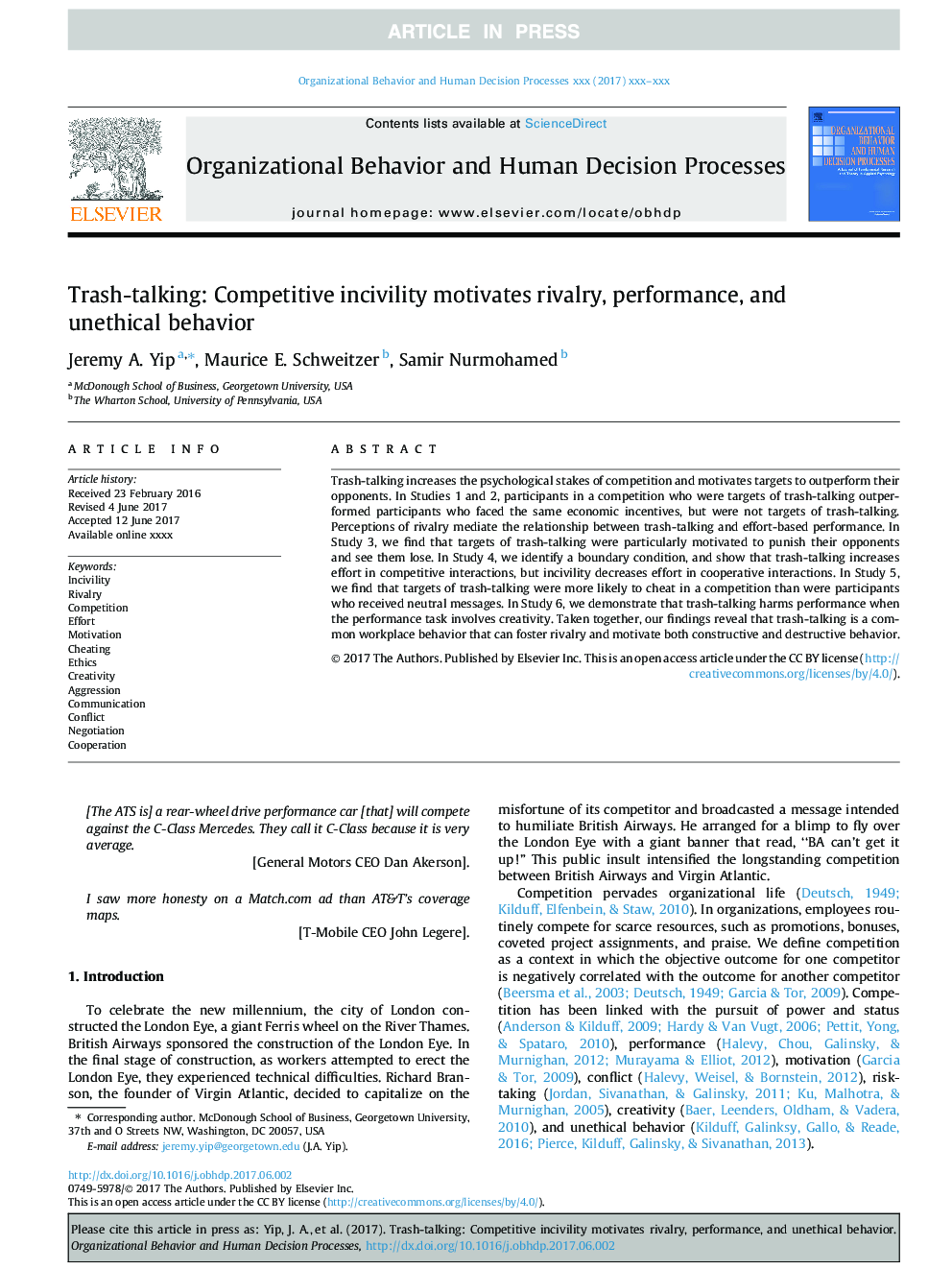| Article ID | Journal | Published Year | Pages | File Type |
|---|---|---|---|---|
| 7248057 | Organizational Behavior and Human Decision Processes | 2018 | 20 Pages |
Abstract
Trash-talking increases the psychological stakes of competition and motivates targets to outperform their opponents. In Studies 1 and 2, participants in a competition who were targets of trash-talking outperformed participants who faced the same economic incentives, but were not targets of trash-talking. Perceptions of rivalry mediate the relationship between trash-talking and effort-based performance. In Study 3, we find that targets of trash-talking were particularly motivated to punish their opponents and see them lose. In Study 4, we identify a boundary condition, and show that trash-talking increases effort in competitive interactions, but incivility decreases effort in cooperative interactions. In Study 5, we find that targets of trash-talking were more likely to cheat in a competition than were participants who received neutral messages. In Study 6, we demonstrate that trash-talking harms performance when the performance task involves creativity. Taken together, our findings reveal that trash-talking is a common workplace behavior that can foster rivalry and motivate both constructive and destructive behavior.
Keywords
Related Topics
Social Sciences and Humanities
Business, Management and Accounting
Marketing
Authors
Jeremy A. Yip, Maurice E. Schweitzer, Samir Nurmohamed,
